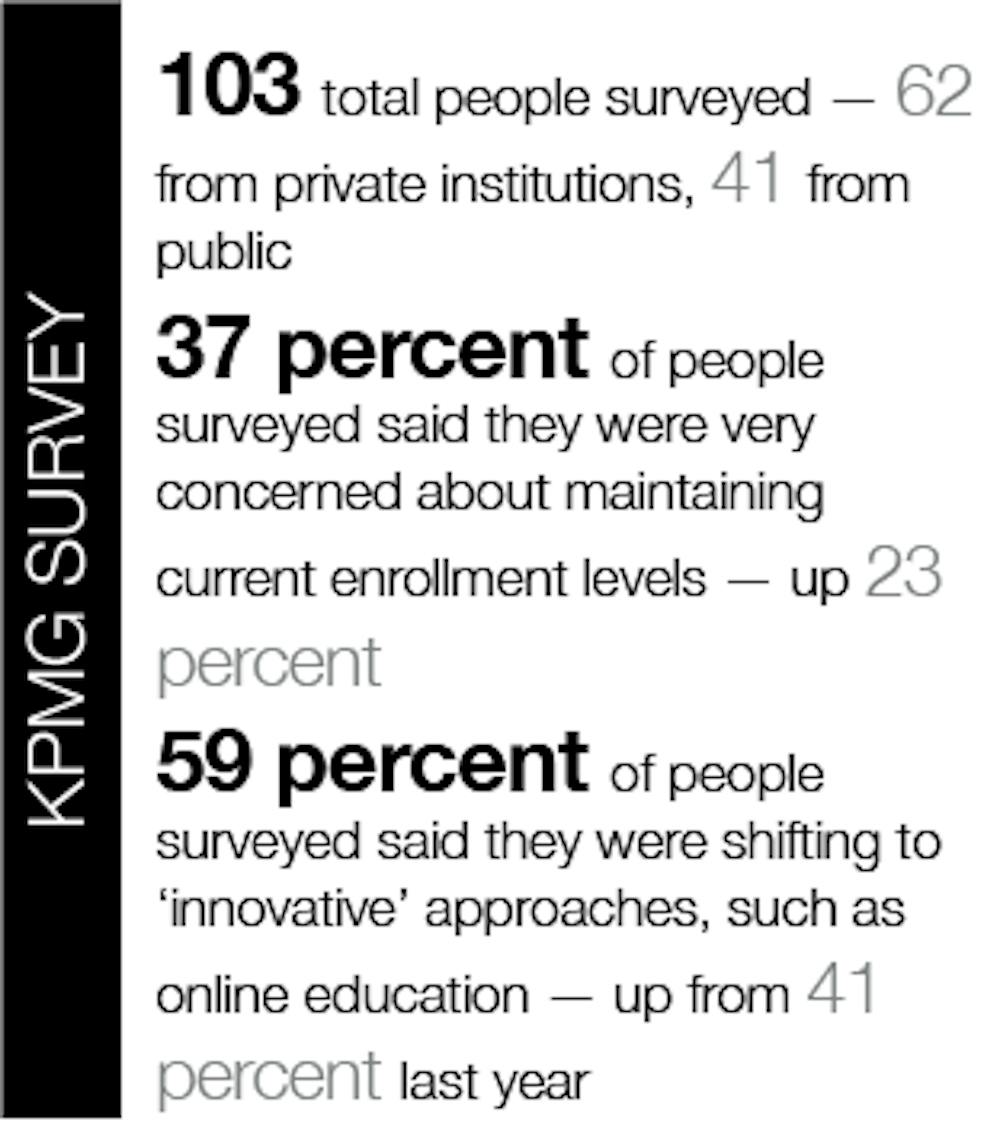In the wake of a turnaround from one of the toughest recessions our country has been through since the Great Depression, attention is being focused on higher education more now than ever before. Particularly, college and university leaders are growing concerned about maintaining student enrollment as tuition rises every year.
A recent survey conducted by KPMG, a U.S. advisory services firm, confirms what many people in education are already thinking: Student enrollment is a problem, and the solution isn’t clear. Out of 103 higher education leaders surveyed, 37 percent said they are “very concerned” about “their ability to maintain current enrollment levels,” which is up from the 23 percent in last year’s survey. Fifty-one percent of all private institutions also said the changing demographics in the United States are a major factor in how their enrollment is affected.
As a private institution, Elon University doesn’t have as much to worry about in regards to enrollment. In fact, this year was the biggest class the school has ever had. One key reason according to Greg Zaiser, vice president for enrollment management and financial planning, is Elon has a tuition plan that is different from a lot of colleges and universities.
“Fundamentally, the reason Elon has been successful is that we have a pretty clear idea of who we are in the educational landscape,” Zaiser said.
Of the other schools Elon students often apply to, Zaiser said, Elon is on average $10,000-20,000 less. While it’s noted scholarships aren’t as plentiful at Elon as they are at other schools, tuition at many private universities commonly reaches the $60,000 range per year.
Elon is a rare school in that it combines a liberal arts education with the option of professional schools, according to Zaiser.
Zaiser said that “the combination of a core liberal arts education and professional schools is one that Elon has really pioneered.” Among what separates Elon from similar universities are experiential learning through the Elon Experiences, engaged learning and small class sizes with a low student/faculty ratio.
Although the school doesn’t have a problem with enrollment, that doesn’t mean it isn’t aware of the economic challenges that face higher education.
“We are certainly keeping an eye on it,” said Steven House, provost and vice president for academic affairs. The craze has slowed down in online innovation, he said, but “we’re still monitoring what’s going on in higher education.”
House and Zaiser both mentioned that while it isn’t a problem currently, enrollment is something they pay attention to constantly as part of their job.
“I think Elon has positioned itself well,” Zaiser said, “But it doesn’t mean that we don’t pay attention because things change on a dime.”


